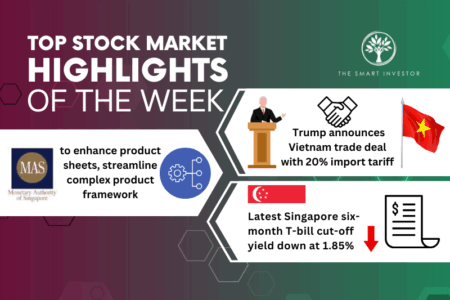“The Art of Thinking Clearly” is an excellent book written by Rolf Dobelli that features a whole list of psychological and behavioural biases, illusions and fallacies.
This new series will focus on how we can understand and be aware of such biases to think more clearly.
Once we remove these obstacles from our thought process, we can then become better investors.
Let’s dive into the first two.
1. Survivorship bias
Survivorship bias describes a situation where samples that “survive” and do well are counted within a survey or sample.
The ones who have failed are thus eliminated from the count.
By doing so, a biased view results as the data is skewed towards samples which have flourished.
This is commonly seen in surveys on businesses started by entrepreneurs to find out their reasons for success or failure as well as the challenges they face.
Surveys normally focus on a few outstanding businesses which have thrived but fail to account for the multitude of failed businesses.
The same effect can also be observed in stock market indices such as the Straits Times Index (SGX: ^STI).
An index is usually made up of the largest and most liquid companies.
Over time, there will be additions and removals based on how well each company’s business is performing.
Survivorship bias creeps in as only the good companies are retained, while many of those who fell by the wayside are unceremoniously dropped from the index.
Investors may get the mistaken impression that “the index always rises over time” – this is a correct observation but ignores the fact that the components of the index change continually.
One recent example of this is the substitution of transport giant ComfortDelGro Corporation Ltd (SGX: C52) with liquor behemoth Emperador Inc (SGX: EMI).
2. Sunk cost fallacy
The sunk cost fallacy is a dangerous one as it causes you to commit more time and resources to causes that may not yield results.
You tend to do so because an initial effort or commitment has already been made.
“Sunk cost” is a concept which relates to an already expended effort (monetary or otherwise) and which cannot be recovered.
As a result of this committed effort, a person may feel that he has “wasted” his previous resources if he does not put in more time and effort (known as “incremental cost”).
However, if the incremental cost results in a failed result or lost cause, then this cost, arguably, should have been expended on a more worthwhile pursuit.
When applied to investing, this concept refers to investors who continue to invest their time and money in a company whose business is performing poorly.
If the initial effort to analyse and perform due diligence may have been substantial, the investor is unlikely to give up on the investment idea.
But being dogged over a poor investment idea may result in losses in the future, not to mention wasting time and energy that could have been better spent on more promising stocks.
It’s not always easy, though, to pull yourself away after spending so much effort on research.
Hence, it’s useful to check yourself from time to time to ensure that you are objective about the decision.
Remember that it’s your money on the line if the investment turns sour – this should be reason enough for you to switch your attention to a better investment candidate!
Looking to start investing? Our beginner’s guide will show you how to make the best buying decision and make fewer mistakes. Click here to download for free now.
Follow us on Facebook and Telegram for the latest investing news and analyses!
Disclosure: Royston Yang does not own any of the companies mentioned.




